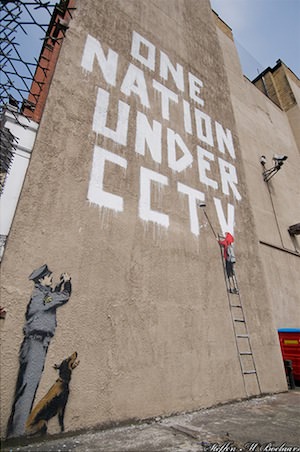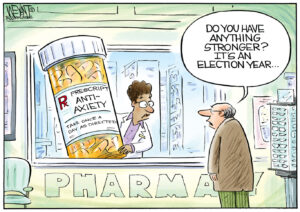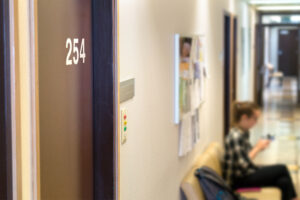High Insecurity in the Police State
Anna Minton took a tour of an East London housing estate that received a Secured by Design award for its “small windows, reinforced steel doors and grey, aluminium, military-style roofs. The overall effect,” she says of results that will be published in a forthcoming report, “was oppressive.”
Anna Minton took a tour of an East London housing estate that received a Secured by Design award for its “small windows, reinforced steel doors and grey, aluminium, military-style roofs. The overall effect,” she says of results that will be published in a forthcoming report, “was oppressive.”
Like barnacles on a ship’s hull, London is accumulating the trappings of a high-security police state. The consequences for the city’s inhabitants, Minton reports, is a mental life characterized by increasing anxiety.
City officials point to the idea of “defensible space,” a concept popularized by 1970s American architect and town planner Oscar Newman, to argue that the increased presence of security cameras (known as CCTV), building checkpoints and armed guards — in essence, building security measures directly into homes, shopping centers and neighborhoods — makes the city safer.
“Both in the U.S. and in Britain, the idea of defensible space was very popular because it provided a simple solution,” Minton says. “Rather than engaging with complex social relations as the underlying causes of crime, [Secured by Design] promoted the idea that environmental design was the biggest influence on behaviour.”
But the “blanket application of SBD standards” is unnecessary and even harmful, she warns. Prior studies have found that CCTV schemes have little impact on crime, and Minton’s investigation shows that the expansion of security measures has not made residents feel safer.
The best way to make people feel comfortable and safe, she said, is to increase the number of caretakers and community workers in a given community.
— Posted by Alexander Reed Kelly.
Your support matters…Anna Minton at The Guardian:
What we found independently was that, although increased security, and in particular CCTV, was often very popular with residents, it did not necessarily lead to feelings of increased safety, with residents reporting that the presence of CCTV could instead increase anxiety.
Security measures including gates and internal doors elicited a similar response, with residents illustrating that “defensible space” can increase fear of strangers. “Because of the doors, if you see someone you don’t know, there is an element of ‘Who is this?'” one resident commented. A practitioner added: “The more you secure a block or an estate, the more it gives a message that something is wrong with that estate.”
Independent journalism is under threat and overshadowed by heavily funded mainstream media.
You can help level the playing field. Become a member.
Your tax-deductible contribution keeps us digging beneath the headlines to give you thought-provoking, investigative reporting and analysis that unearths what's really happening- without compromise.
Give today to support our courageous, independent journalists.






You need to be a supporter to comment.
There are currently no responses to this article.
Be the first to respond.